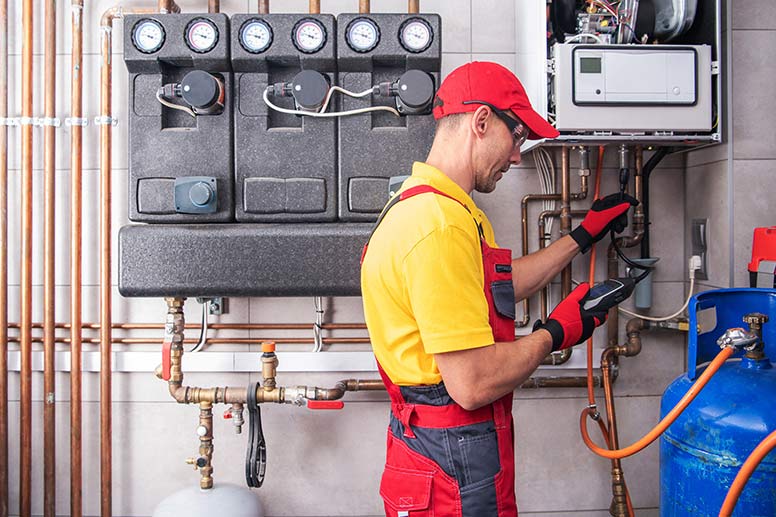Plumbing Insurance in California: How to Choose the Right Coverage & Save in 2025

Table of Contents
This guide breaks down how to get a Plumbing Insurance in California and other States across the U.S. in 2025.
Running a plumbing business isn’t just about fixing leaks and installing pipes—it’s about building trust, maintaining compliance, and protecting your livelihood.
In California, where regulations are strict and competition is fierce, having the right insurance is essential.
From securing your tools to safeguarding your finances, proper insurance ensures your business is prepared for the unexpected.
Let’s get into it:
Why Can't California Plumbers Afford to Skip Insurance?
Plumbing is a high-risk trade, often involving hazardous conditions, expensive tools, and access to clients’ homes or businesses. Without the right insurance coverage, even a minor issue can snowball into a financial nightmare. Here’s why it’s a non-negotiable to protect your business:
1. Legal Compliance
California law requires licensed plumbing contractors to carry specific insurance policies. Operating without them can lead to fines, lawsuits, or suspension of your business license.
For instance, the Contractors State License Board (CSLB) mandates that all licensed plumbers hold a $25,000 surety bond and, if they employ workers, workers’ compensation insurance.
2. Financial Protection
From burst pipes that flood a client’s home to workplace injuries, accidents at the job site can quickly rack up costs and bring financial losses.
Insurance makes sure that you’re not paying out-of-pocket for damages, legal fees, or medical expenses, which could otherwise, in the worst case scenario, cripple your business.
3. Building Client Confidence
Clients are more likely to trust and hire a plumber who can show proof of insurance. It signals professionalism and reassures them that they won’t be left out in the cold if something goes wrong.
RELATED ARTICLE: How To Start A Plumbing Business? 6-Step Guide

Types of Insurance Every California Plumber Needs
To run a compliant and protected plumbing business, you’ll need several key insurance policies. Let’s take a detailed look at each one:
1. General Liability Insurance
This is the cornerstone of any plumber’s insurance plan. This insurance protects:
- Third-party bodily injuries: For example, if a client trips over your tools and gets hurt.
- Property damage: Water damage, such as accidentally bursting a water main during installation.
- Personal injury claims: Including slander or defamation tied to your business.
Cost: Premiums typically range from $3,100 to $9,400 annually, depending on the size of your business and your chosen coverage limits.
2. Workers’ Compensation Insurance
If you have employees, workers’ comp is a legal requirement in California. This coverage protects your team and your business by covering:
- Medical expenses for on-the-job injuries.
- Lost wages for employees during recovery.
- Legal fees if an injured worker sues your business.
Cost: Expect to pay between $2,433 and $4,258 per year, influenced by factors like your number of employees and the inherent risks of plumbing work.
3. Commercial Auto Insurance
Transporting tools, equipment, and materials is a daily part of plumbing and unfortunately, standard auto policy won’t cut it for business vehicles. Commercial auto insurance covers:
- Accidents or injuries caused by your work vehicle.
- Repairs or replacement costs for a damaged vehicle.
- Liability for damage caused during work-related driving.
Pro Tip: Insure all vehicles used for business purposes, even if they’re personal cars.
4. Tools and Equipment Insurance
Your tools are your bread and butter. This policy protects your investment by covering:
- Theft or loss of tools, whether they’re on-site or in transit.
- Damage to equipment caused by accidents.
- Rental costs if you need replacement tools temporarily.
Cost: The annual premium depends on the total value of your tools and equipment.
5. Surety Bonds
California’s CSLB requires plumbers to hold a $25,000 surety bond. This isn’t traditional insurance but a financial guarantee to your clients. If you fail to meet your contractual obligations, the bond compensates them.
Cost: Surety bonds typically cost between $250 and $750 per year, depending on your credit score and business history.
RELATED ARTICLE: How To Get A Plumbing License in 2025? 6 Simple Steps

How Much Does Plumbing Insurance Cost?
Your insurance premiums depend on factors like the size of your business, the services you offer, and your location. Below is a rough cost breakdown:
| Insurance Type | Estimated Annual Cost |
| General Liability | $3,100-$9,400 |
| Worker’s Compensation | $2,433-$4,258 |
| Surety Bonds | $250-$750 |
| Commercial Auto Insurance | Varies (Vehicle Value) |
| Tools and Equipment | Based on equipment value |
Larger businesses or those handling high-risk projects (like industrial plumbing) may face higher premiums. On the other hand, solo operators or smaller teams can often secure more affordable rates.
RELATED ARTICLE: How To Price Plumbing Jobs in 2025? The Definitive Guide
Do I Need to Renew my License?
Your California plumbing license needs to be renewed every two years. The Contractors State License Board (CSLB) will send you a renewal application roughly two months before it expires.
To stay on top of your renewal, you can check the expiration date on your license pocket card or use the CSLB’s handy California plumber license lookup tool.
RELATED ARTICLE: How Much Do Plumbers Make? 2025 Salary Guide
Tips for Choosing the Right Insurance
Selecting the right provider and coverage is key to keeping your business protected without overspending. We’ve broken down they key points on how to get it right:
- Assess Your Needs: Identify the specific risks your business faces. For instance, if you frequently work in older homes, you may want additional coverage for structural damage.
- Compare Providers: Get quotes from multiple insurance companies to find the best coverage at a competitive price.
- Check Reviews: Look for providers with strong reputations for reliability and responsive customer service.
- Understand Your Policy: Don’t just skim the fine print. Make sure you understand what’s covered—and what’s not.
How Invoice Fly Can Help
Managing your insurance policies doesn’t have to be a headache. Tools like Invoice Fly can simplify your admin tasks by:
- Tracking premium payments and renewal dates.
- Organizing invoices and receipts for tax time.
- Helping you stay on top of expenses, so you never miss a payment.
With streamlined financial tools, you can focus more on your business and less on paperwork.

Final Thoughts
Insurance is the backbone of a successful plumbing business in California. It keeps you compliant, protects your finances, and helps you earn the trust of your clients. While the upfront costs can seem steep, the peace of mind and financial security they offer are well worth it.
Start by reviewing your current policies, assessing your needs, and comparing providers to find the best fit. And with tools like Invoice Fly in your corner, managing your expenses and insurance has never been easier.
Plumbing Insurance FAQs
Yes. To legally operate in California, you must have general liability insurance and a surety bond. Workers’ compensation insurance is required if you plan to hire employees.
Without proper coverage, you risk fines, lawsuits, and loss of licensure. Plus, any damages or injuries caused during your work could result in massive out-of-pocket costs.
Absolutely. Many insurers offer discounted rates if you combine multiple policies, such as general liability, commercial auto, and tools insurance.
Yes, depending on your niche. For example, pollution liability insurance covers issues related to hazardous waste or environmental contamination, which can be essential for industrial or large-scale projects.
